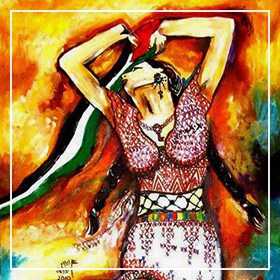1. To what extent does the notion of political agency help to understand political change?
I should emphasize here that my analysis of political agency is grounded in an international relations (IR) background rather than in an anthropological one. In IR the “dilemma” over the extent to which political agency can bring about or even just affect political transformations is a major issue. Opposing positions have emerged, shaping two different approaches. One is neo-realist, which denies any relevance to “people as political agents” able to impact macro political changes. The other is a “social-constructivist” school of thought that draws on sociology and anthropology, and emphasizes political agency as a crucial factor, among others, in understanding political changes.
My approach to this issue is influenced by my empirical research and, particularly, by the study of Palestinian student movements and their contribution to the emergence and development of the Palestinian liberation movement.
It is undeniable that systemic mechanisms (i.e. state interests, geopolitical concerns and economic dynamics especially in a globalized world) have a direct impact on, and shape politics. However, contemporary developments in the Palestinian youth movement and the attempt to elaborate new strategies and regain a vanguard role in the struggle for liberation show that people remain important political agents and their actions are still fundamental to respond to political dynamics at the structural level and even to impact them. In the past few years the protests that Asef Bayat terms “youth non-movements” were unorganised and even uncertain in defining their strategies and demands yet, they clearly broke from the apathy of previous decades. The current intifada, suggests that a decisive rupture in the political framework has already happened and that spontaneous, decentralized and unorganized resistance might persist beyond the political infrastructure of party politics, neo-liberal economic coercion and repression.
2. Are Area Studies still relevant to understand contemporary dynamics of political and social transformations?
Area Studies are still central for understanding political transformations. While the relevance of regional analysis has been challenged by the emergence of globalised politics and the consequent need to elaborate on theoretical frameworks that are able to incorporate the new transnational dimension of political and social changes, contemporary events have reminded us of the necessity to keep focusing and even strengthening Area Studies.
Thus, the interconnection between “the local” and “the global” is fundamental in understanding political dynamics and transformations, as the two levels influence each other.
Even more, it is now evident that Area Studies not only provide relevant empirical analysis but also allow to trace more general trends and to foresee broader, transnational, political trajectories. The recent Arab uprisings are a case in point in this sense, and demonstrate how relevant Area Studies still are in understanding socio-political and even economic and cultural transformations. The analysis of regional transformations has focused on local as well as international factors: scholars have pointed out that Arab politics–and resistance– should be understood “as a complexity that goes beyond the mere interaction between ‘the regime’ and ‘the Arab people’ and these politics are related to shifting power balances in contemporary globalization” (Bogaert ). The transnational relevance of the “Arab spring” becomes evident: the emergence of movements such as Occupy Wall Street in the USA, or Podemos in Spain share the same critiques of globalised neoliberal policies of many opposition movements in the Arab region.
The study of current events in the Arab World is shedding light on the new understanding of politics and the role of “the people” not only in the Middle East but also more broadly across the world.
Visit our virtual roundtable for more responses.
Featured image by Stan Aron (flickr, CC BY-NC-ND 2.0)





